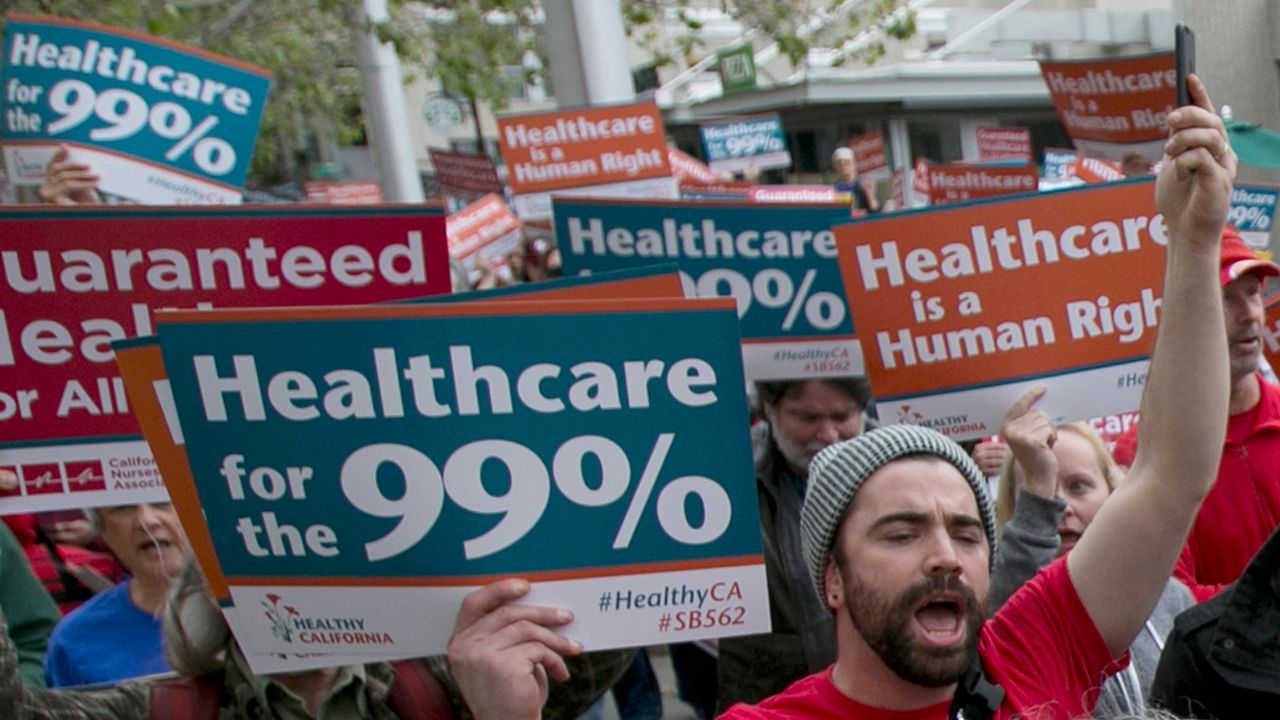Shifting some costs of the Medicaid program from local governments to the state has had "consequences," Governor Andrew Cuomo said in a conference call on Monday with reporters.
Cuomo is set to unveil his 2020-21 state budget proposals on Tuesday as New York faces a $6.1 billion budget gap largely due to a $4 billion hole in the Medicaid program.
The state has already started to address the Medicaid gap with shifting costs. But Cuomo has also stirred fears from local government officials, especially in New York City and at the county level, that his plan would affect local Medicaid costs.
Asked to elaborate about his statements on the issue made during his State of the State address earlier this month, Cuomo gave little further explanation, though hinted that the local government costs have weighed on the program.
"We do have structural issues in the growth of the Medicaid program, and structural issues that need to be addressed," Cuomo said on the call.
"That is exacerbated by the fact that the state now pays a much larger percentage of Medicaid than it did in the past because we now pay the local share for the past six years. We did that because we passed a property tax cap and the counties complained they had too much pressure to stay within the cap and we said we'll pay the increase in Medicaid and that had consequences — not just financial, but operational — in that when the local governments were operating the program and paying for the program, 25 cents on the dollar, they had a financial incentive to run that program in an economical way and administer it in an economical way and police it and monitor it."
Cuomo said the shift "had consequences" for the broader program.
"Look, education, health care, criminal justice, these are complex systems," he said. "When you change one component, it often has ripple effects or consequences throughout the system. I wanted to raise that so people remembered it and understood it before we had the Medicaid conversation in the budget."
New York's Medicaid program is one of the most expensive in the country and makes up the largest portion of the budget. County governments picking up the costs of administering the program began under Nelson Rockefeller, and local government leaders have long blamed Albany for shifting the burden to them, impacting local taxes along the way.
Health care spending in the budget is also one of the most politically fraught issues facing a governor and state lawmakers. Hospital groups and health care unions hold broad influence in Albany, with tens of billions of dollars at stake.
Meanwhile, as Cuomo noted the Medicaid gap was something that needs to be addressed, he also said the issue won't affect his agenda for the 2020 legislative session. The gap, he noted, is the product of projected spending increases.
"People hear deficit and they get concerned," he said. "But, I said, look, we have a very bold agenda that I outlined in the State of the State and we are going to enact a very bold agenda and we are going to find the funding to do that."
Nevertheless, Cuomo ended his answer, after gently chiding a reporter for asking about it, on something of a cliffhanger.
"To answer your question specifically, what are we going to do vis-a-vis local governments, I'll tell you tomorrow," he said.


